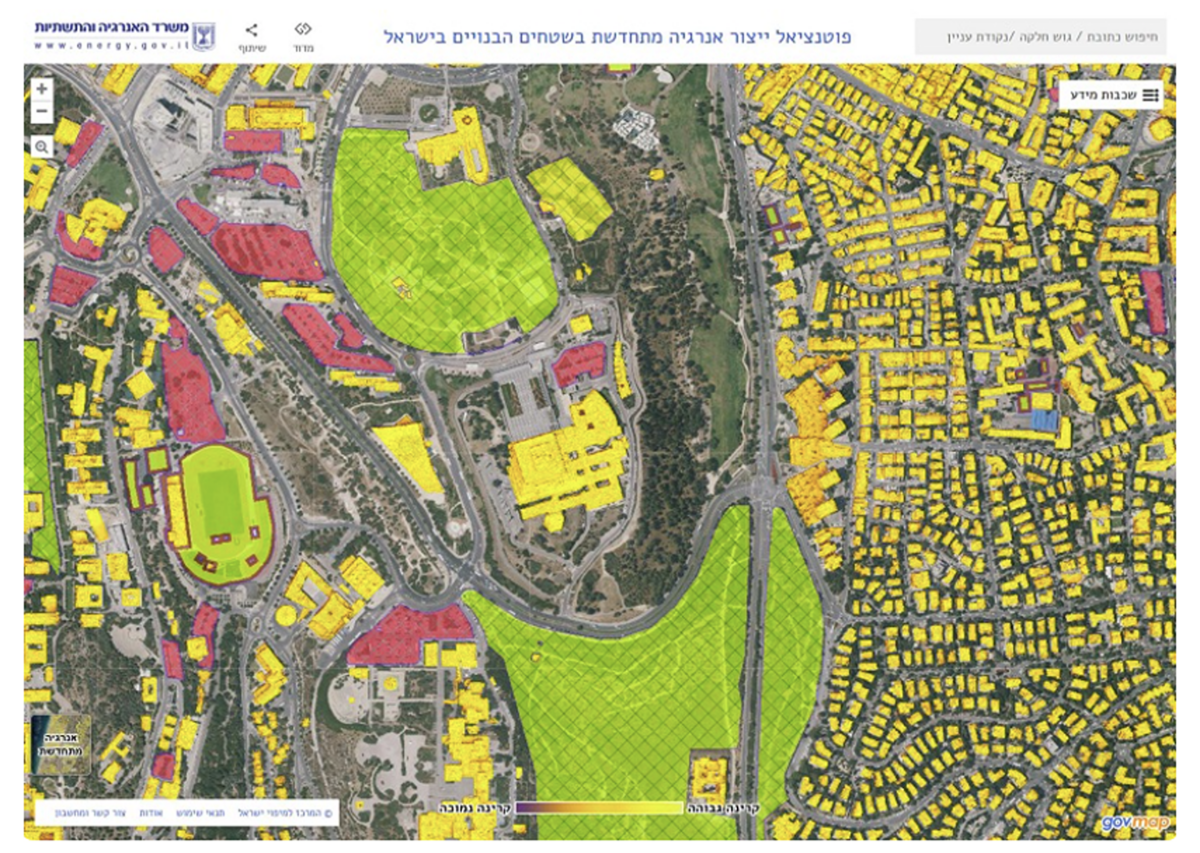Israel’s Ministry of Energy and Infrastructure and the Israel Mapping Center have collaborated on a tool offering public information on rooftop solar potential.
The system uses algorithms and artificial intelligence to automatically map available areas in Israel where solar systems can be installed. It analyzes the intensity of solar radiation and subtracts areas occupied by existing PV systems.
The tool provides details on potential rooftop solar production for residential, commercial, industrial, and public buildings, as well as sports fields, public parking lots, cemeteries, and agricultural spaces in built-up areas.
It also calculates the expected total production hours for each site and estimates the annual income from selling electricity, with a running calculator available on the ministry's website.
The ministry said it plans to develop a dashboard to help local authorities formulate policies that promote solar energy use in public buildings and areas.
Yossi Dayan, director general of the Ministry of Energy and Infrastructure, said the tool supports Israel's goal of generating 30% of its electricity from renewables by 2030.
“This is a move that significantly reduces the electricity bill and sometimes even leads to its cancellation, and also constitutes an economic investment and a long-term source of income,” Dayan added. “A solar roof provides energy security for the family in times of emergency and maintains a green and clean environment.”
In January, Israeli solar developer Teralight said it had begun operating Israel’s largest solar project to date.
This content is protected by copyright and may not be reused. If you want to cooperate with us and would like to reuse some of our content, please contact: editors@pv-magazine.com.




By submitting this form you agree to pv magazine using your data for the purposes of publishing your comment.
Your personal data will only be disclosed or otherwise transmitted to third parties for the purposes of spam filtering or if this is necessary for technical maintenance of the website. Any other transfer to third parties will not take place unless this is justified on the basis of applicable data protection regulations or if pv magazine is legally obliged to do so.
You may revoke this consent at any time with effect for the future, in which case your personal data will be deleted immediately. Otherwise, your data will be deleted if pv magazine has processed your request or the purpose of data storage is fulfilled.
Further information on data privacy can be found in our Data Protection Policy.